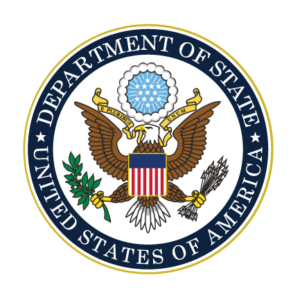University of Rhode Island
Aquaculture Carrying Capacity and Water Quality in Indonesian Lakes and Reservoirs
Project Purpose
To estimate system capacities for aquaculture in data-poor freshwater lakes and reservoirs through modeling of inputs and fates of major limiting nutrients, in a social and economic context.
International Country Partners
University of Stirling (UK), Bogor Agricultural University (Indonesia), Surya University (Indonesia)
Focus Area
Agriculture, food security, and water
Indonesia is ranked #4 in the world in aquaculture (farmed seafood) production, but not all of its production is environmentally sound. Aquaculture Carrying Capacity (ACC), depending on one’s perspective (production, ecological, or social), is the maximum amount of aquaculture allowed in a water body without causing unacceptable impacts on farms, the ecosystem, or society. Our project examined ACC for a spectrum of water bodies in Indonesia: Lake Toba (North Sumatra), the world’s largest volcanic crater lake, which has seen aquaculture expansion recently; Lakes Cirata and Jatiluhur (West Java), 30-year-old hydropower reservoirs in which aquaculture has expanded beyond all reasonable limits; and Lake Jatigede (West Java), a new hydropower reservoir that was under construction during the project. Given the scarcity of data on these water bodies, we used a simple, tried-and-true method of mass-balance modeling of phosphorus (P) to calculate ACC. We also modeled ACC under various scenarios of mitigation measures, like improving feeds and feeding practices or growing aquaponic plants to take up excess nutrients from the water.
Multi-university student teams worked on each water body, guided by faculty. Lake Toba [studied by grad students Dimitar Taskov (Stirling), Irina Timonina (Stirling), Josh Oakley (URI), and Arif Rahman (Bogor)] is above the ACC that allows good quality water for tourism. Lake Cirata [studied by Marius Nicolini (Stirling), Terri Breeden (URI), Sri Utammi (Bogor), and about 40 undergraduate students from an Agribusiness class at Surya] is far above ACC and aquaculture production has fallen from 6 tons/cage when the lake was new to about 1.4 tons/cage today, due to poor water quality and disease. Lake Jatigede [studied by Pamela Booth (URI), Terri Breeden, Josh Oakley and Andri Warsa (Bogor)] still has not been filled with water due to social problems of forcing people to leave their land; although we were able to calculate a preliminary ACC based on riverinputs and land runoff of P, final ACC calculation will require at least two years of P monitoring in the new lake. Lake Jatiluhur [studied by Dimitar Taskov and Irina Timonina] is also far above ACC and the government has decreed that over 80% of the cages must be removed. Much effort was put into interviewing stakeholders to understand the social and economic context of the aquaculture industry in each lake, so that recommendations would be realistic and implementable.
Overall, this project has given the U.S. and U.K. graduate students tremendous international experience in addressing global challenges, and has given the Indonesian students valuable experience in working as part of international, interdisciplinary teams. So far, seven of the graduate students have completed master’s degrees based on this project. At the Asia-Pacific Aquaculture 2016 conference in Surabaya, Indonesia in April, this project presented seven oral and two poster contributions.
